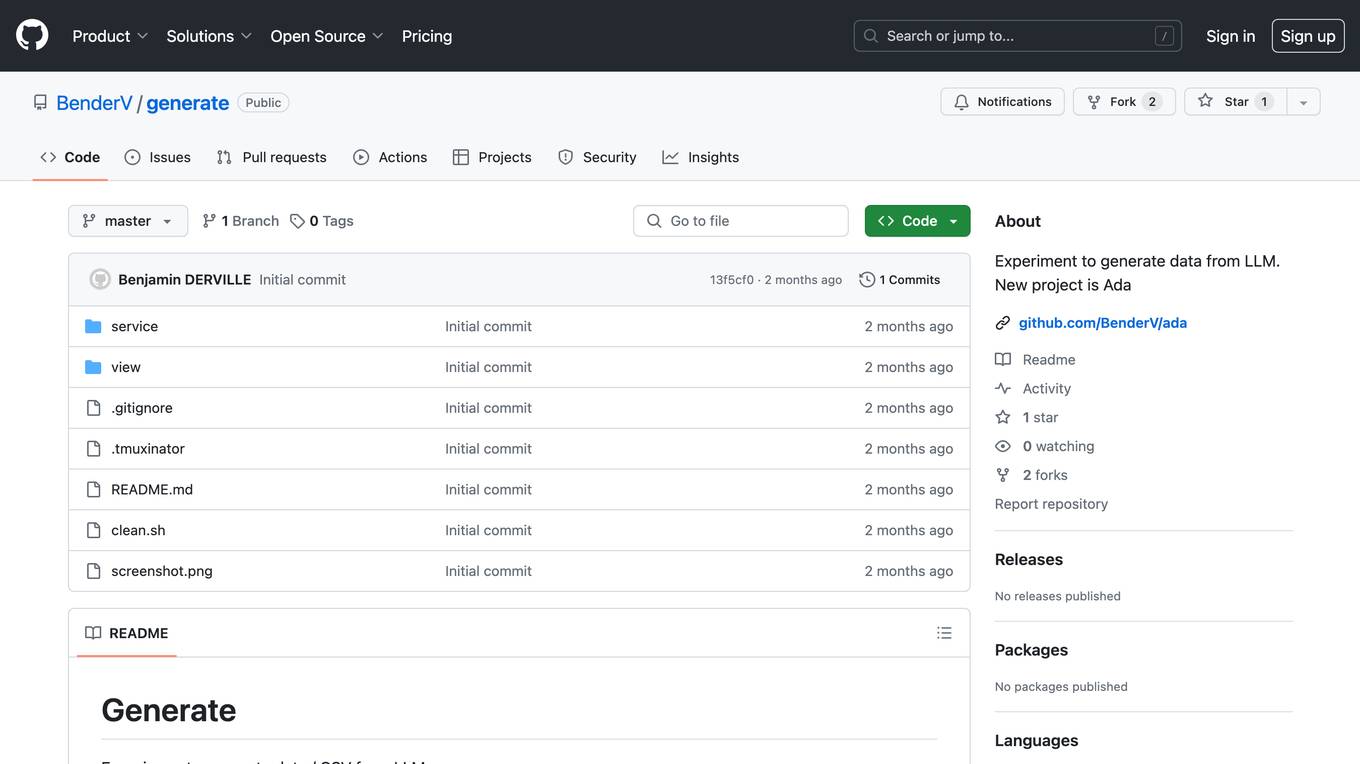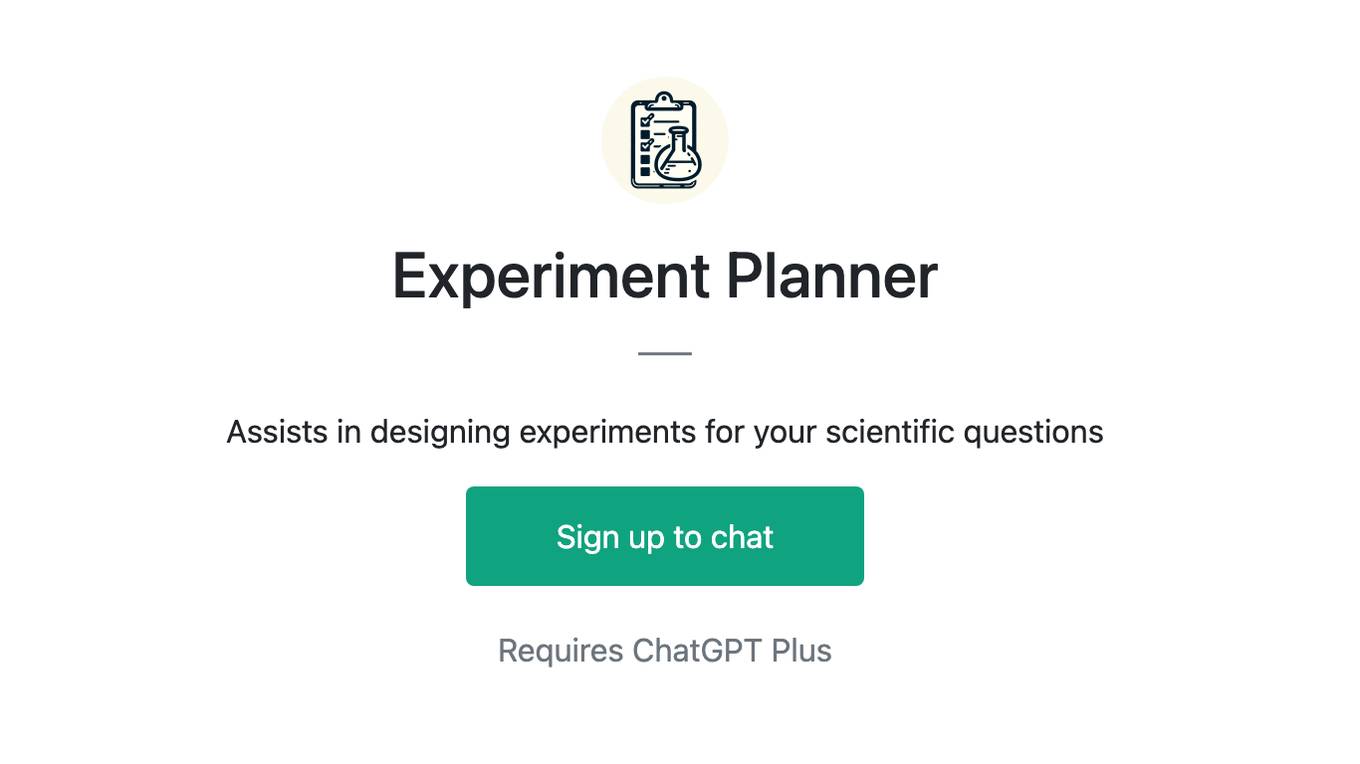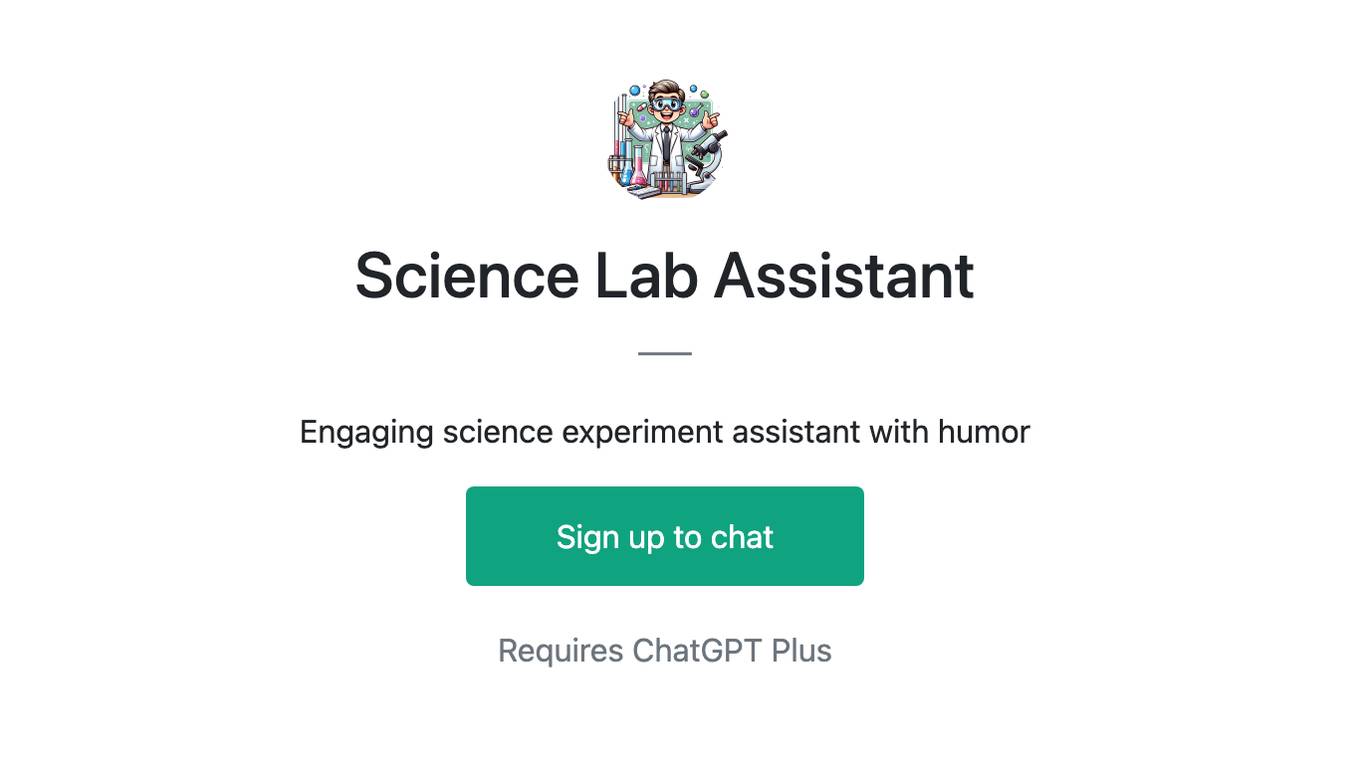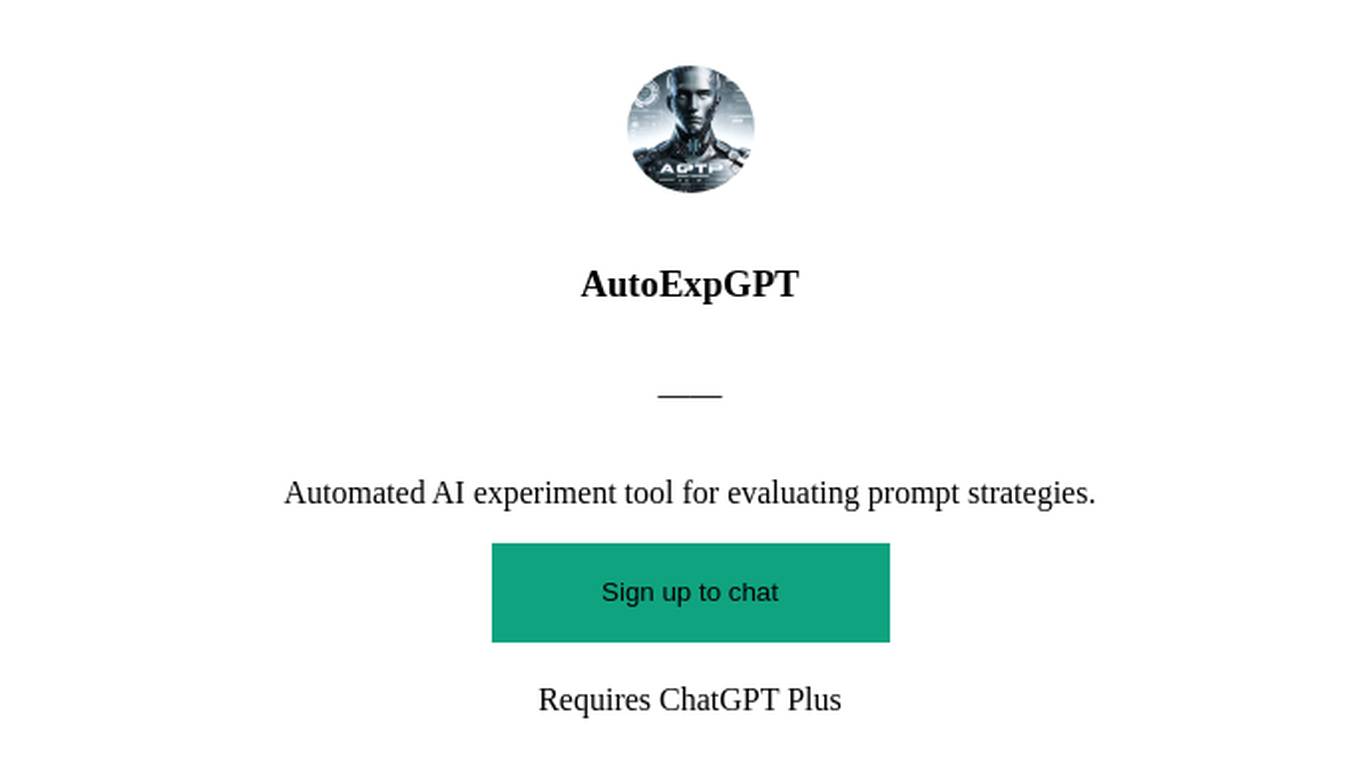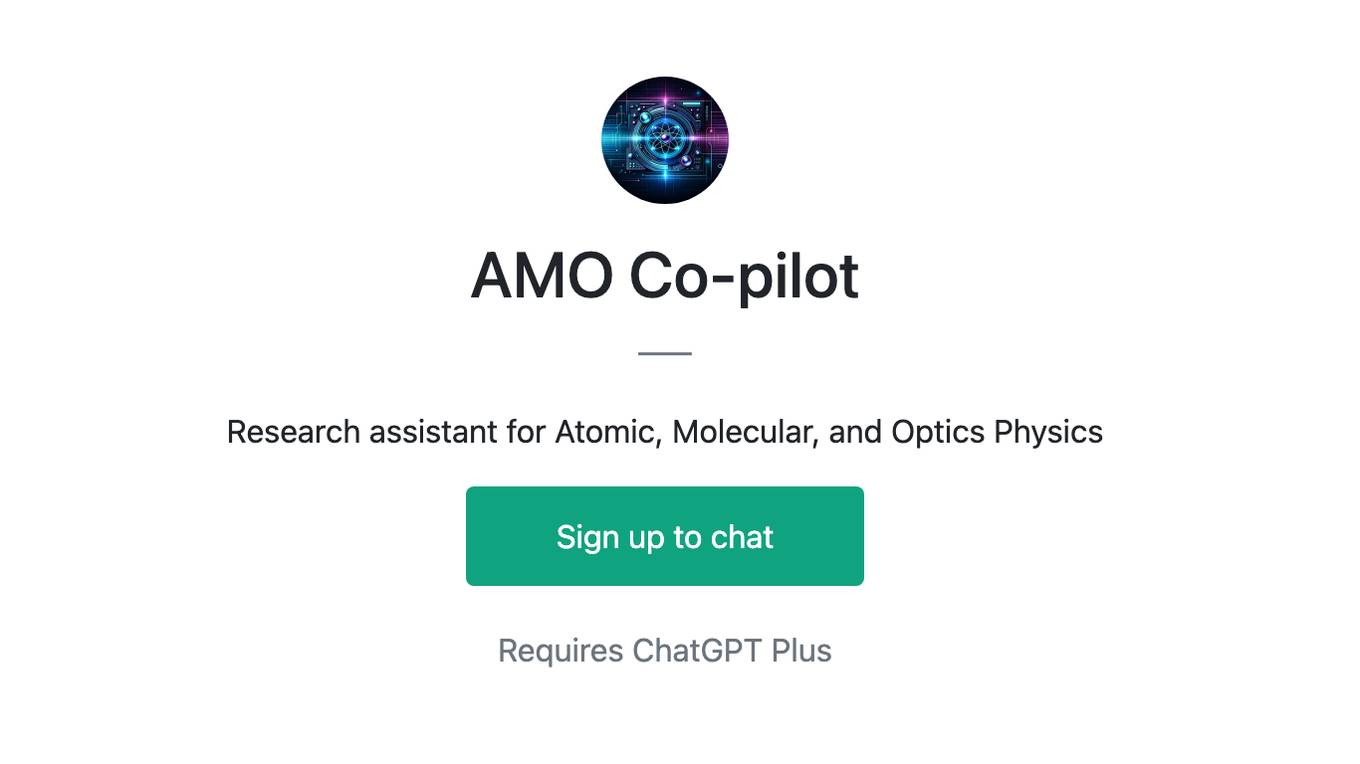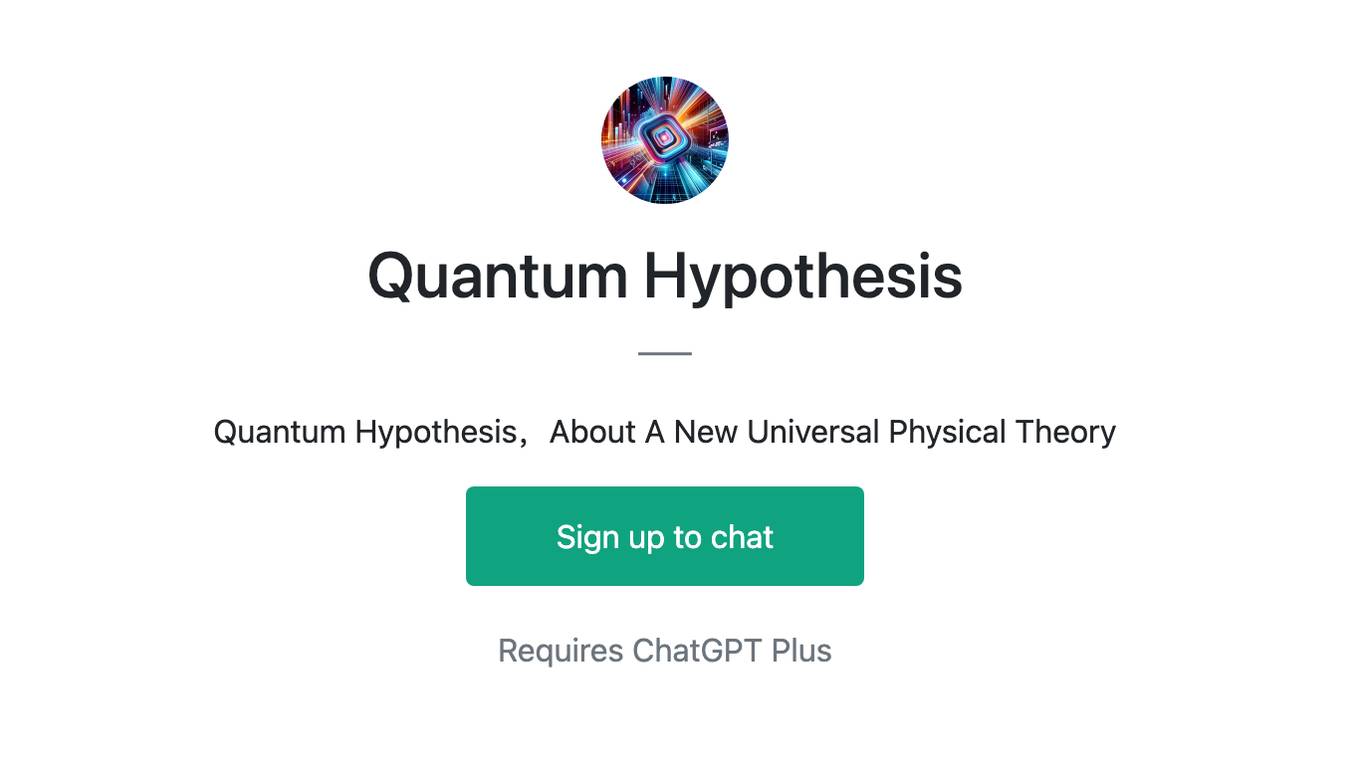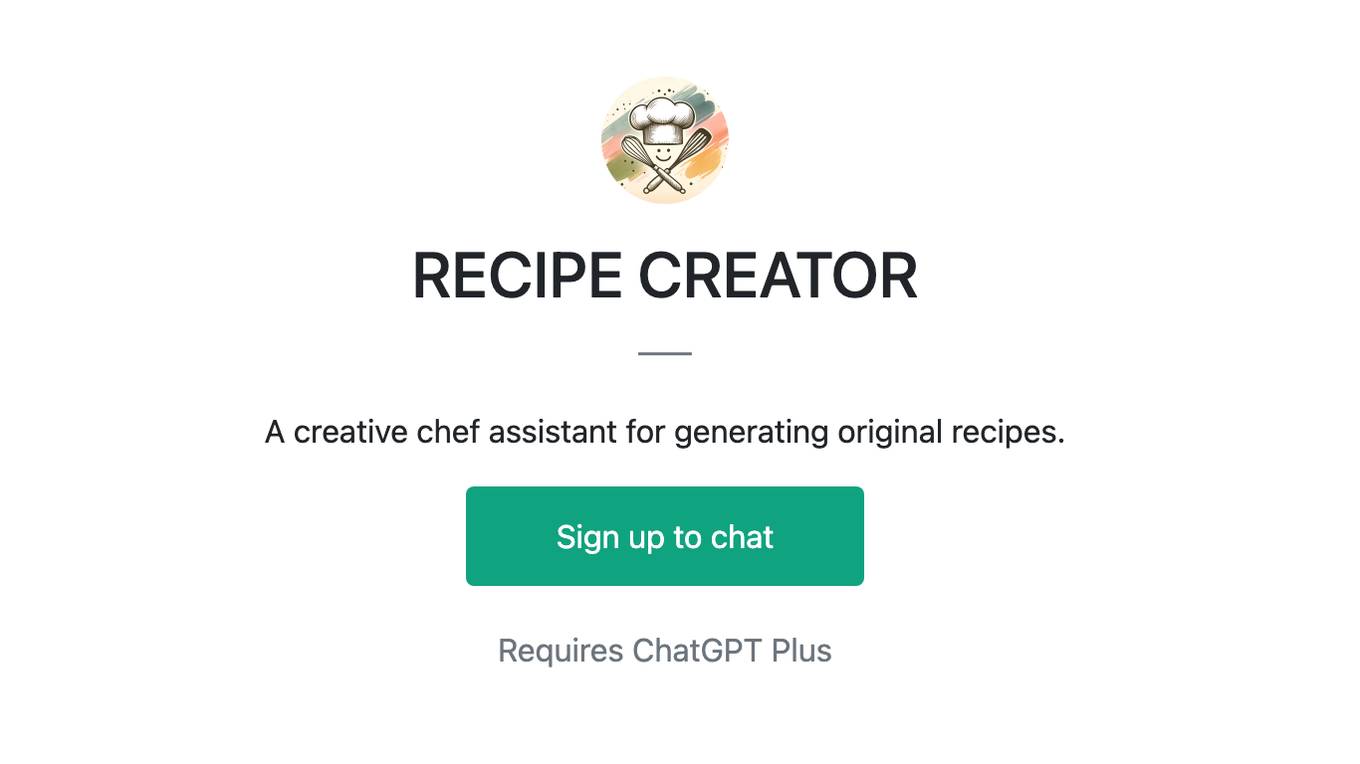Best AI tools for< Experiment Setup >
20 - AI tool Sites
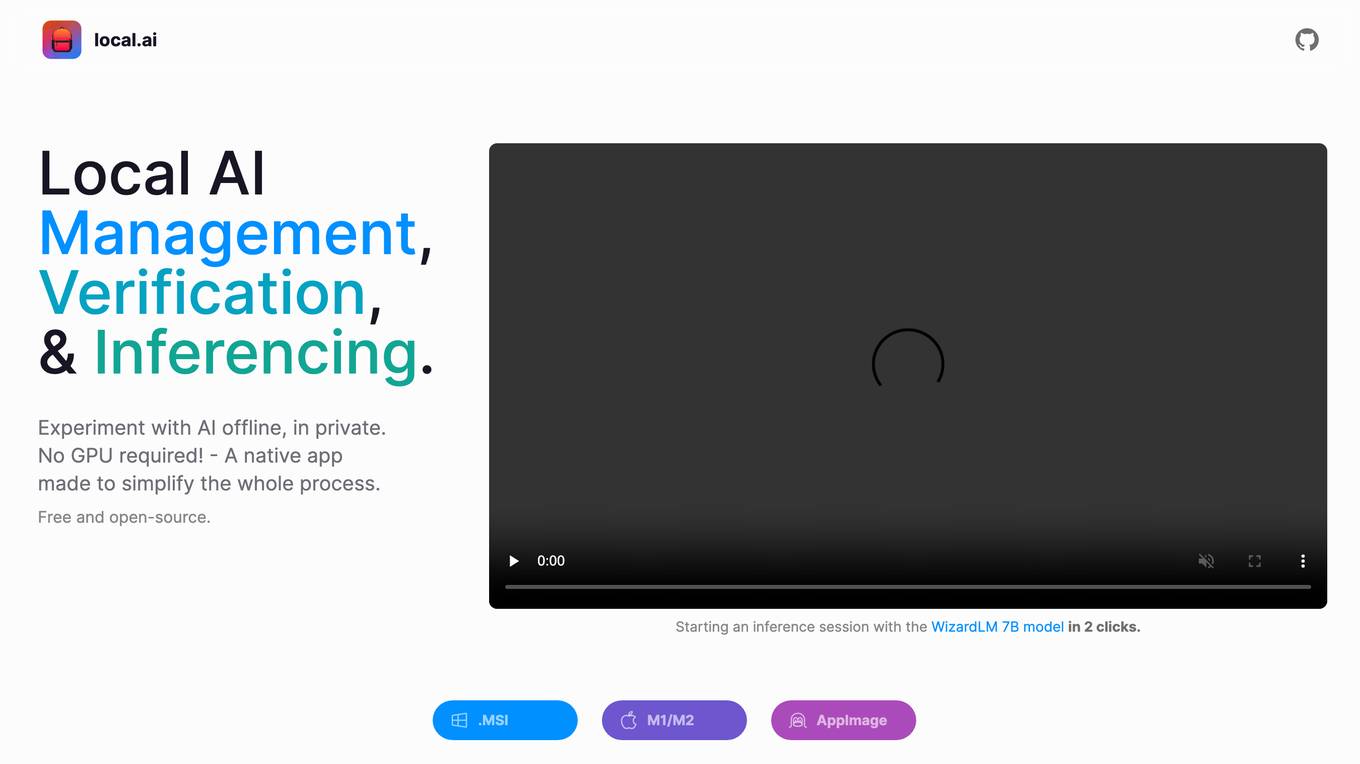
Local AI Playground
Local AI Playground is a free and open-source native app designed for AI management, verification, and inferencing. It allows users to experiment with AI offline in a private environment without the need for a GPU. The application is memory-efficient and compact, with a Rust backend, making it suitable for various operating systems. It offers features such as CPU inferencing, model management, and digest verification. Users can start a local streaming server for AI inferencing with just two clicks. Local AI Playground aims to simplify the AI development process and provide a user-friendly experience for both offline and online AI applications.
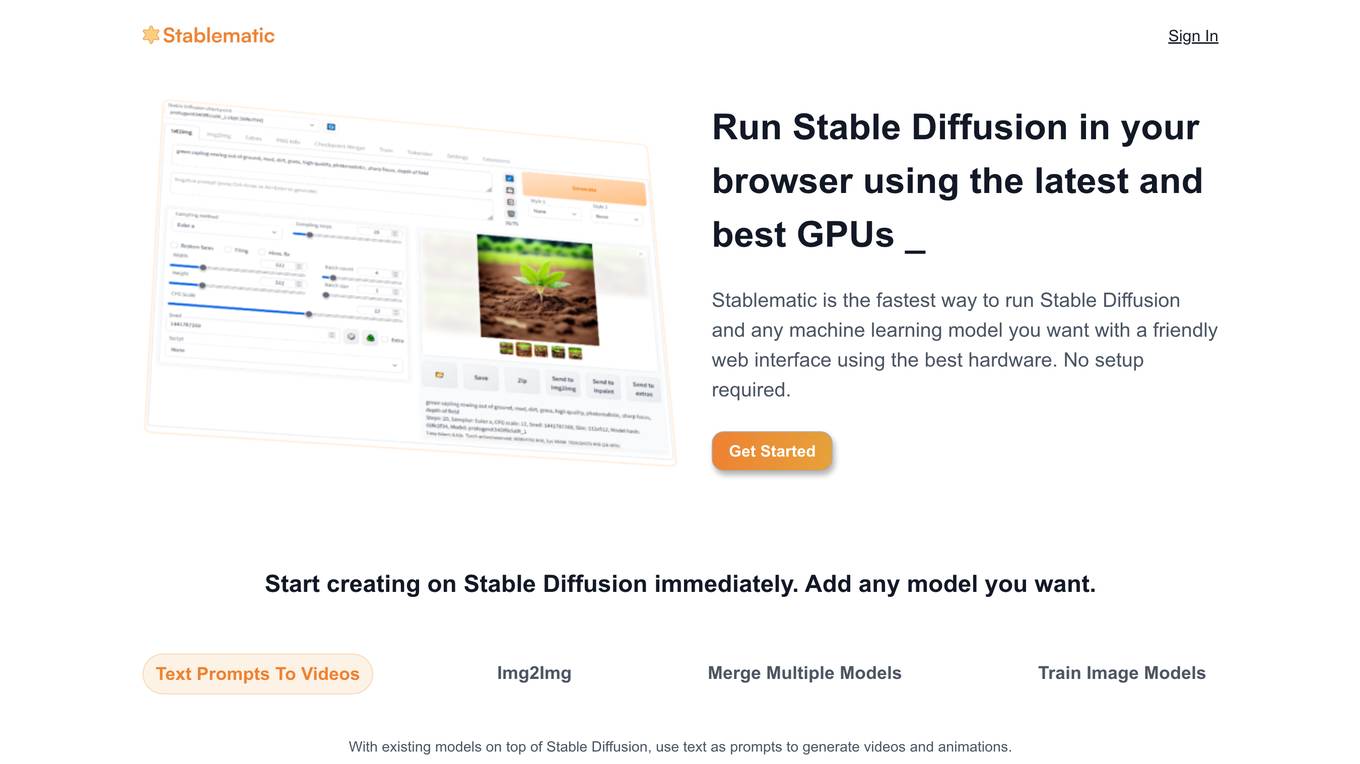
Stablematic
Stablematic is a web-based platform that allows users to run Stable Diffusion and other machine learning models without the need for local setup or hardware limitations. It provides a user-friendly interface, pre-installed plugins, and dedicated GPU resources for a seamless and efficient workflow. Users can generate images and videos from text prompts, merge multiple models, train custom models, and access a range of pre-trained models, including Dreambooth and CivitAi models. Stablematic also offers API access for developers and dedicated support for users to explore and utilize the capabilities of Stable Diffusion and other machine learning models.
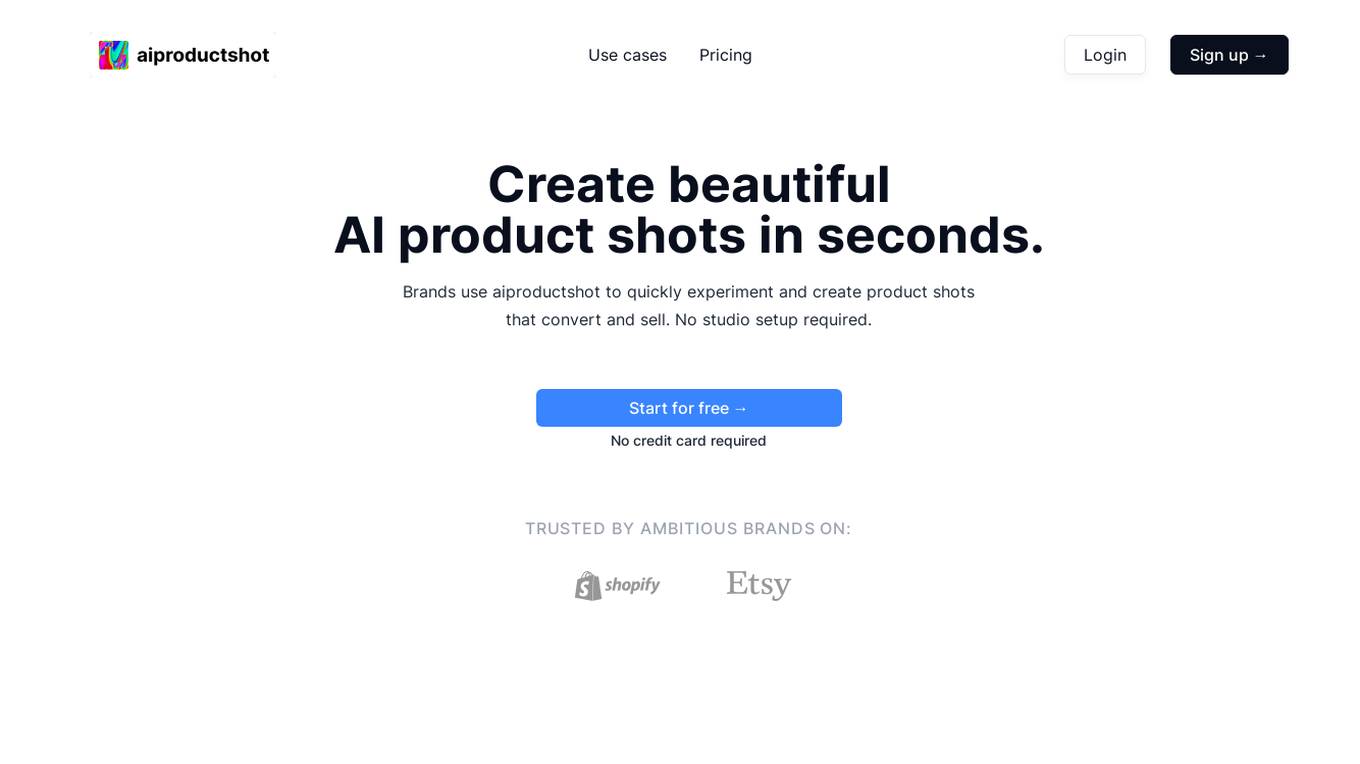
AI Product Shot
AI Product Shot is an innovative AI tool that enables users to create professional product ads quickly and effortlessly. With AI Product Shot, users can experiment with various product shots, generate photorealistic concepts, and create stunning product ads that drive conversions. The tool eliminates the need for a physical studio setup, allowing brands to bring their products to life with ease. AI Product Shot offers studio-quality results, transforming basic background product shots into professional assets in minutes. Users can train custom AI models, experiment with different environments and lighting, and produce unique product images with unlimited creativity.

Practice Run AI
Practice Run AI is an online platform that offers AI-powered tools for various tasks. Users can utilize the application to practice and run AI algorithms without the need for complex setups or installations. The platform provides a user-friendly interface that allows individuals to experiment with AI models and enhance their understanding of artificial intelligence concepts. Practice Run AI aims to democratize AI education and make it accessible to a wider audience by simplifying the learning process and providing hands-on experience.
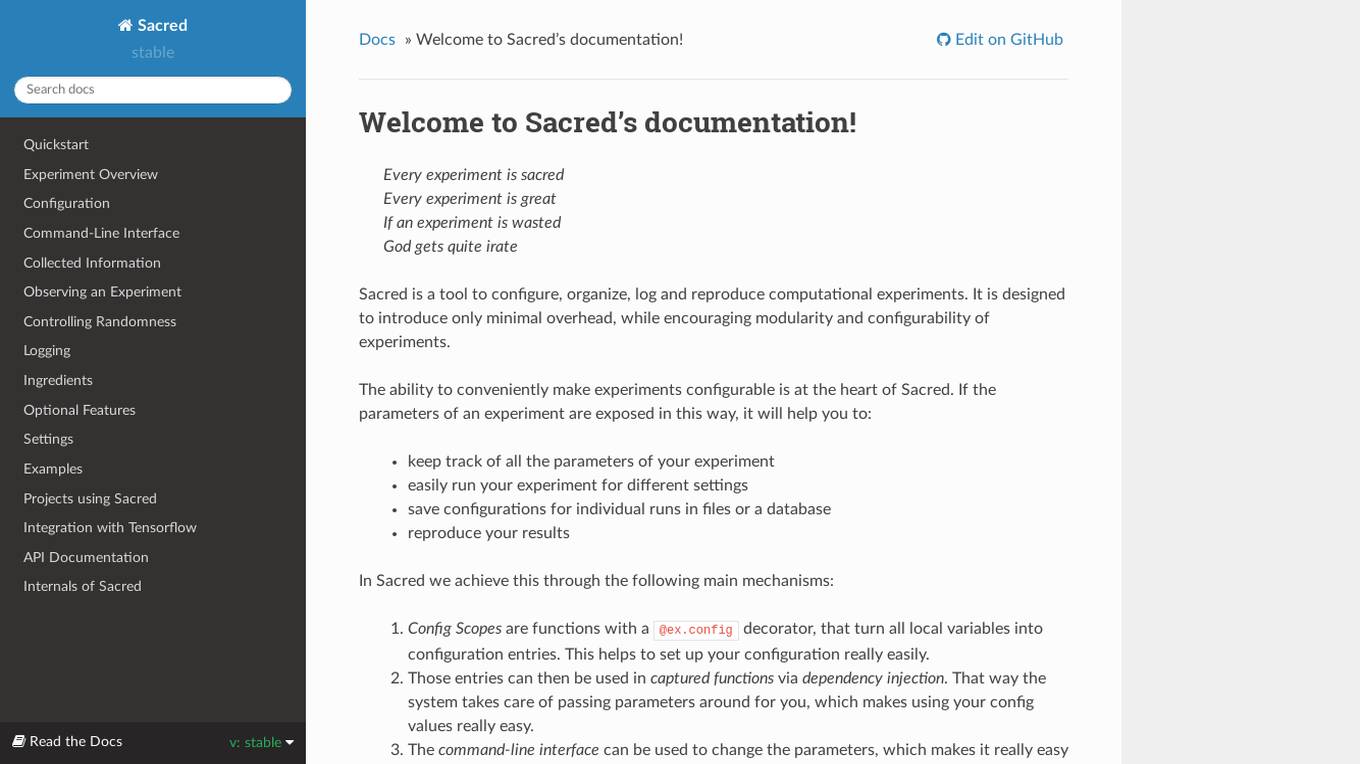
Sacred
Sacred is a tool to configure, organize, log and reproduce computational experiments. It is designed to introduce only minimal overhead, while encouraging modularity and configurability of experiments. The ability to conveniently make experiments configurable is at the heart of Sacred. If the parameters of an experiment are exposed in this way, it will help you to: keep track of all the parameters of your experiment easily run your experiment for different settings save configurations for individual runs in files or a database reproduce your results In Sacred we achieve this through the following main mechanisms: Config Scopes are functions with a @ex.config decorator, that turn all local variables into configuration entries. This helps to set up your configuration really easily. Those entries can then be used in captured functions via dependency injection. That way the system takes care of passing parameters around for you, which makes using your config values really easy. The command-line interface can be used to change the parameters, which makes it really easy to run your experiment with modified parameters. Observers log every information about your experiment and the configuration you used, and saves them for example to a Database. This helps to keep track of all your experiments. Automatic seeding helps controlling the randomness in your experiments, such that they stay reproducible.

More Views AI
More Views AI is an AI tool designed to help YouTube content creators increase their view count by testing different video settings. The tool uses artificial intelligence to analyze video titles, suggest variations, and run A/B tests to determine the best-performing title. It offers features such as automatic A/B toggling, performance tracking, views optimization, AI-generated title suggestions, and thumbnail testing. Users can connect their YouTube account, set up experiments in seconds, and let the algorithm optimize their video titles to attract more views.
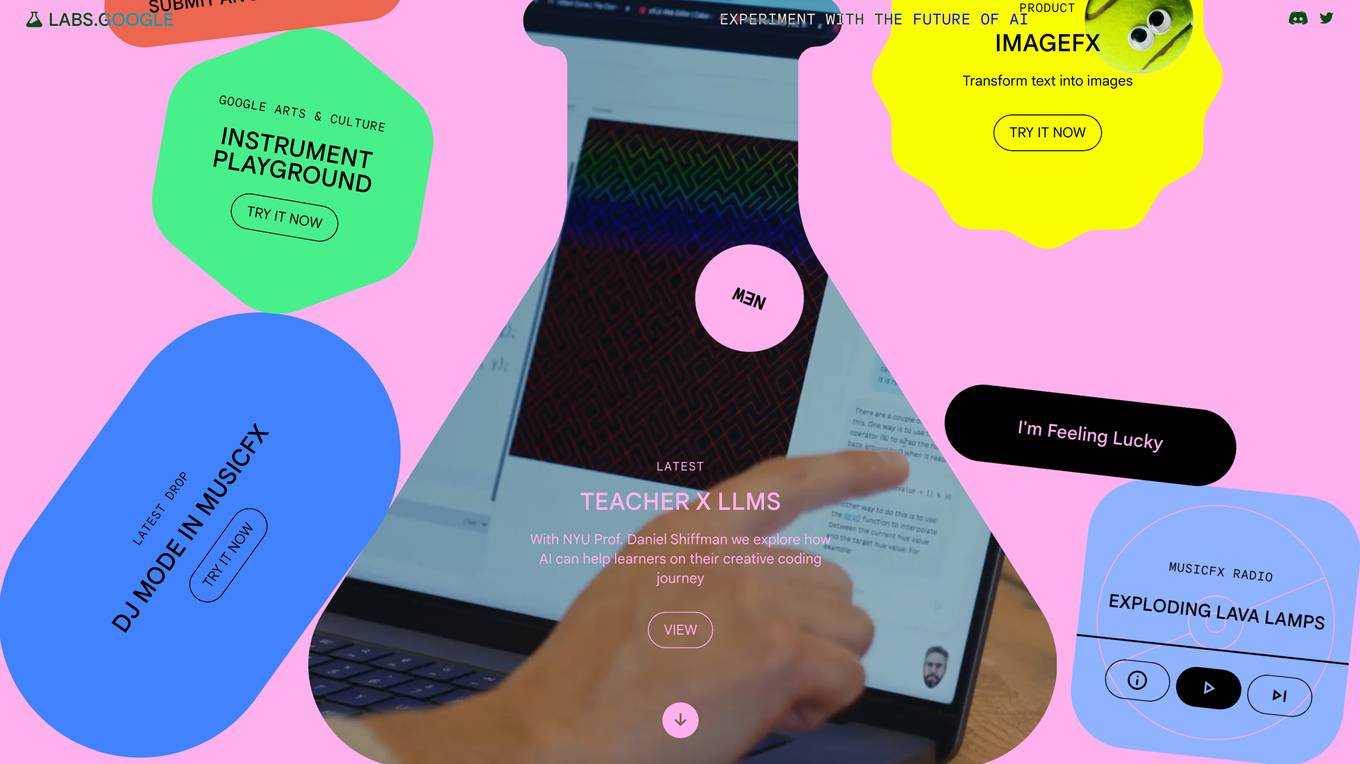
Google Labs
Google Labs is a website that showcases experimental AI tools and technology developed by Google. These tools are designed to help users explore the potential of AI in various fields, including creativity, productivity, and education. Some of the featured tools include: - **LABS.GOOGLE**: A platform for experimenting with the future of AI, including tools for creating images from text, generating music, and writing scripts for home automation. - **NotebookLM**: A personalized AI collaborator designed to help users with their thinking and writing. - **Say What You See**: A tool that helps users learn the art of prompting and improving their image-reading skills. - **Help Me Script**: A tool that turns text into home automation scripts for Google Home. - **ImageFX**: A tool that transforms text into images, allowing users to explore endless possibilities. - **Gen AI in Chrome**: A tool that creates themes with AI, organizes tabs, and helps users write more confidently on the web. - **MusicFX**: A tool that describes a musical idea and brings it to life. - **Duet AI**: A tool that helps users create, write, visualize, and organize in new ways with collaborative AI tools in Google Workspace. - **TextFX**: A tool that supercharges the writing process with AI-powered language tools.
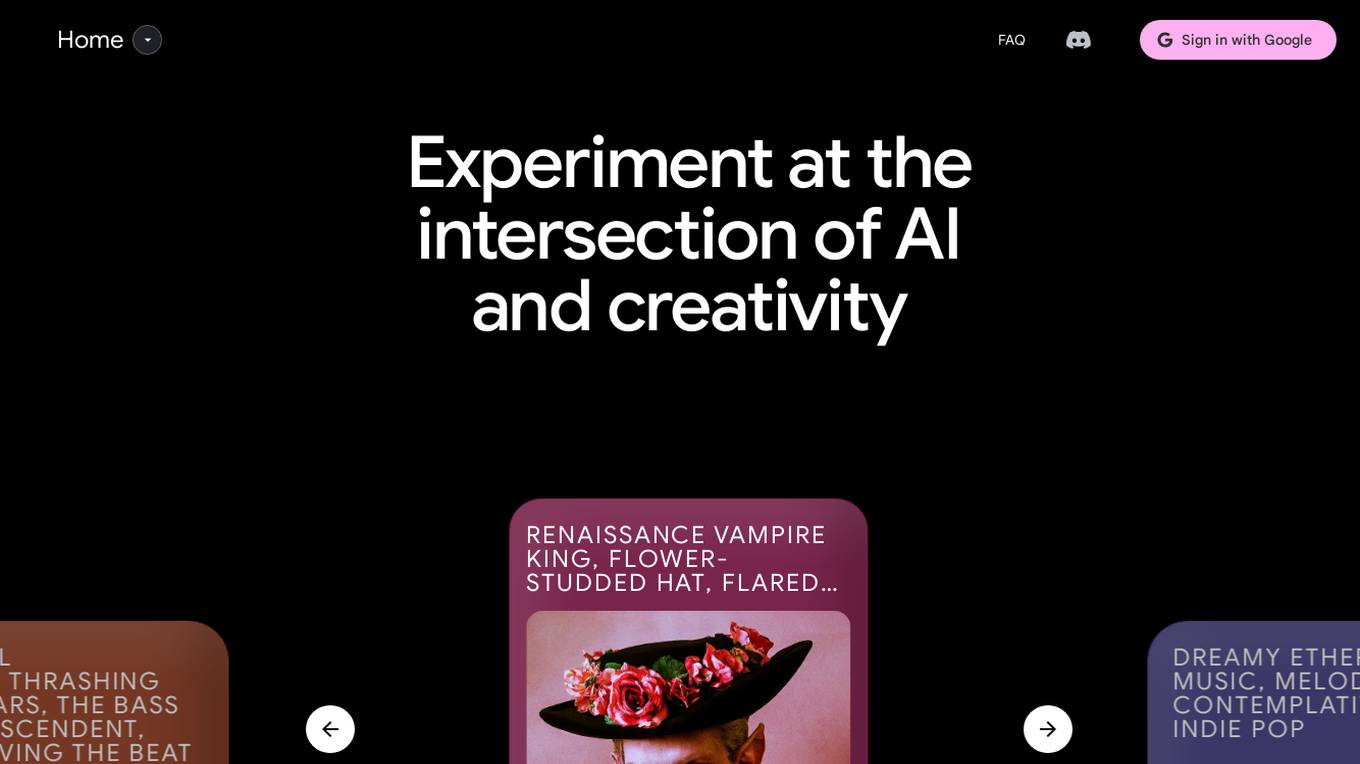
AI Test Kitchen
AI Test Kitchen is a website that provides a variety of AI-powered tools for creative professionals. These tools can be used to generate images, music, and text, as well as to explore different creative concepts. The website is designed to be a place where users can experiment with AI and learn how to use it to enhance their creative process.
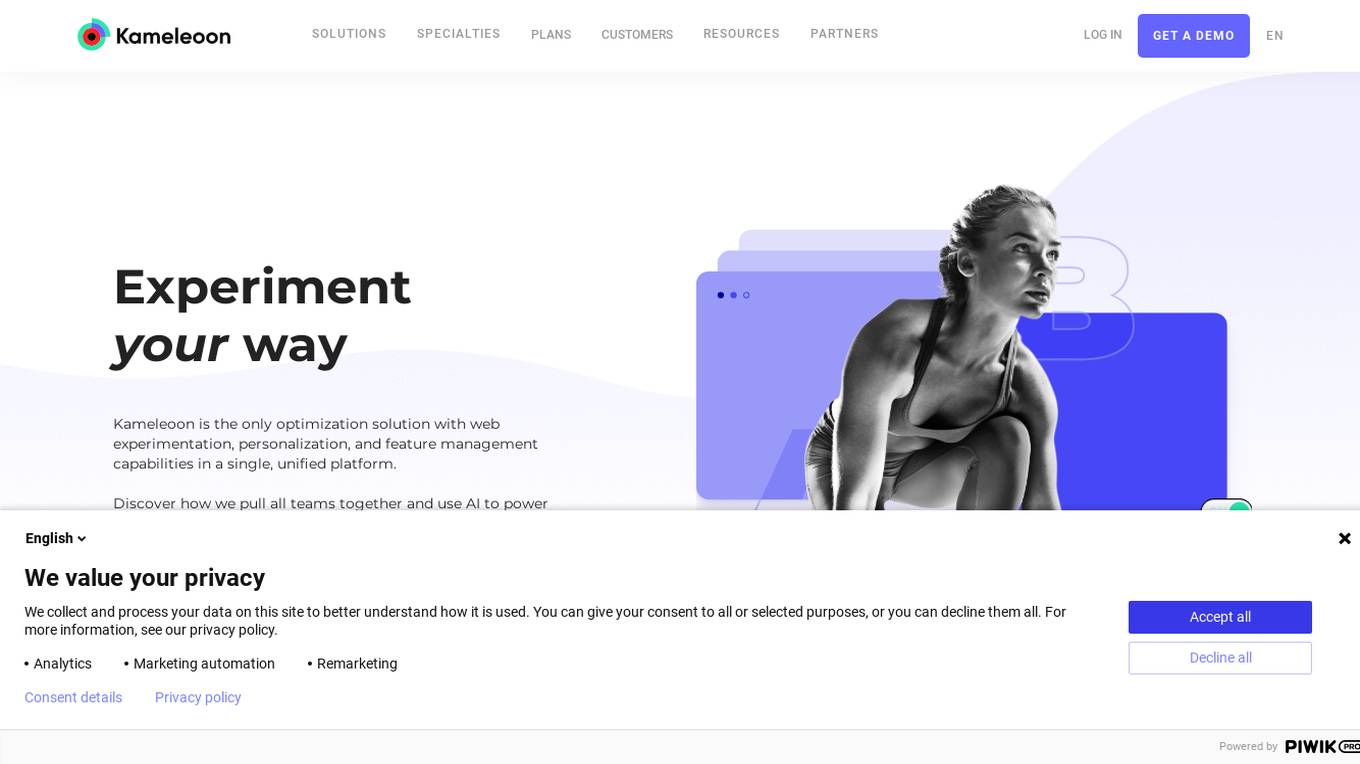
Kameleoon
Kameleoon is an AI-driven A/B testing platform and personalization tool designed to optimize web experiences through experimentation and feature management. It offers a single platform with AI-powered conversion capabilities, strong security features, and powerful integrations. Kameleoon caters to a wide range of industries, including E-commerce, Retail, Travel, Automotive, Financial Services, Media, Healthcare, and B2B SaaS. The platform enables users to run experiments, personalize content, manage features, and analyze real-time data to enhance user experiences and drive growth.
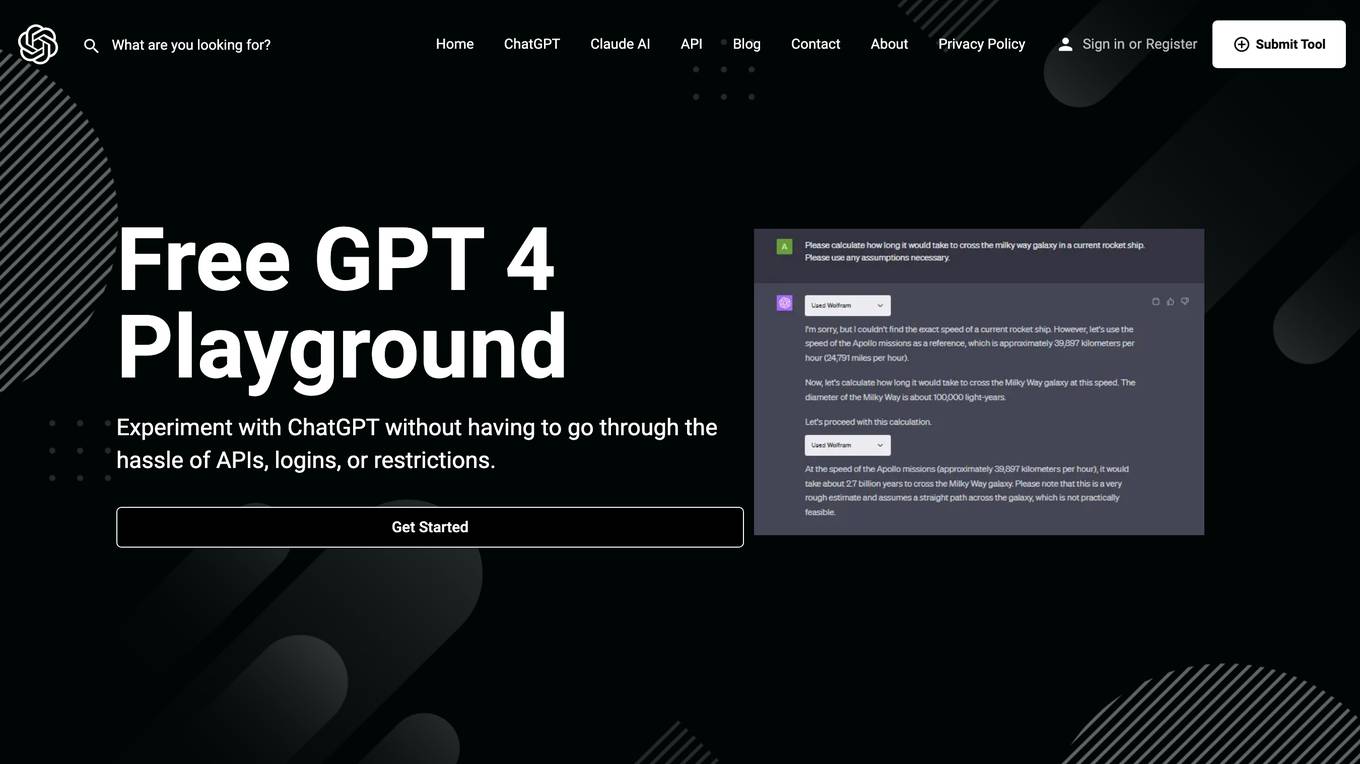
GPT4Free
GPT4Free is a free playground for experimenting with ChatGPT without the hassle of APIs, logins, or restrictions. It offers a wide range of features, including a prompt library, organized chats, import/export functionality, customizable model parameters, and multiple language support. GPT4Free also provides access to GPT Reverse Proxy, allowing users to interact with GPT4 & GPT3.5 and GPT4 Vision from anywhere in the world.

Aim
Aim is an open-source experiment tracker that logs your training runs, enables a beautiful UI to compare them, and an API to query them programmatically. It integrates seamlessly with your favorite tools.
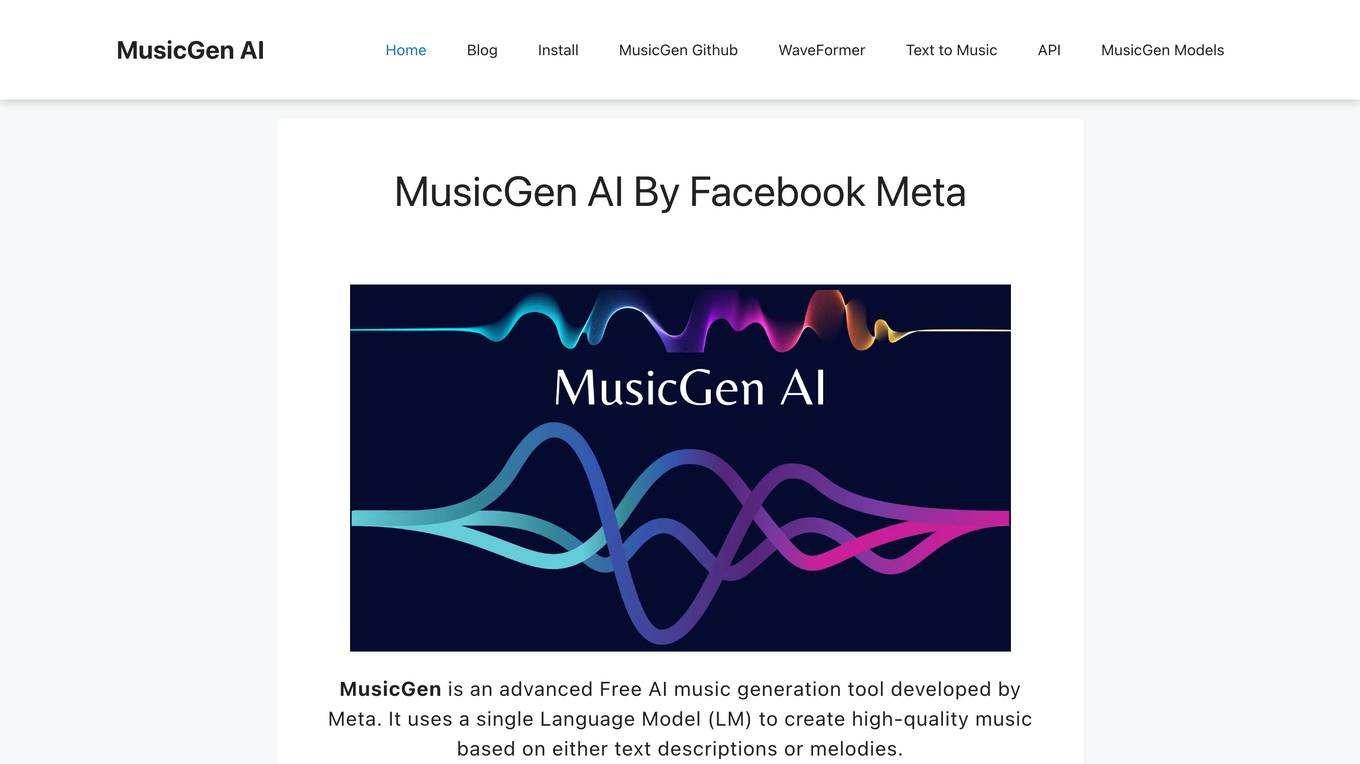
MusicGen AI
MusicGen AI is a free and advanced AI music generation tool developed by Meta. It utilizes a single Language Model (LM) to create high-quality music based on text descriptions, melodies, or audio prompts. MusicGen operates by encoding music into compressed tokens, which are then used to generate the music samples. It can produce music in various formats, including mono and stereo. MusicGen AI offers a range of features, including melody conditioning, text-conditional generation, audio-prompted generation, advanced model architecture, flexible generation modes, unconditional generation, extensive training dataset, and customizable generation process.
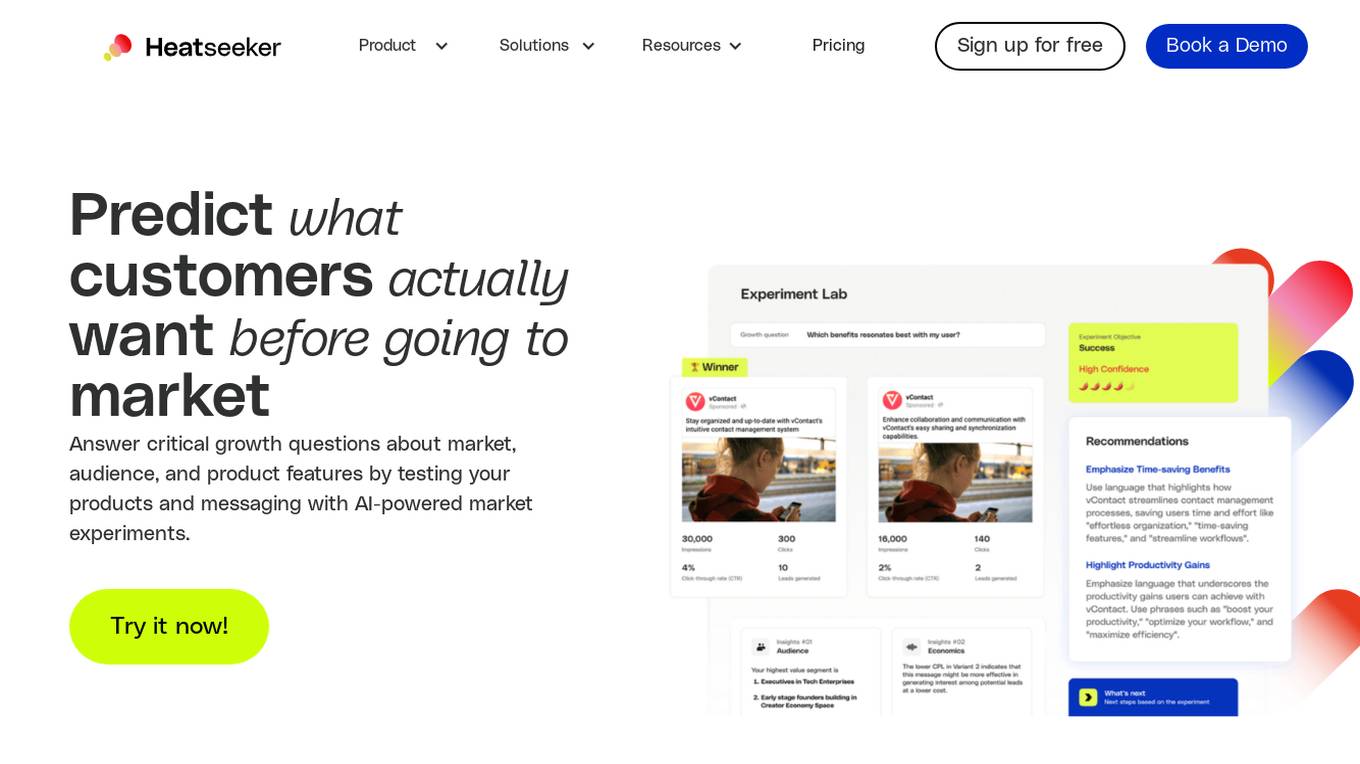
Heatseeker
Heatseeker is an AI-powered market experimentation tool that helps businesses predict customer preferences, conduct feature tests, and generate value propositions. It enables users to answer critical growth questions about market, audience, and product features through AI-powered experiments. Heatseeker provides insights into market trends, competitor analysis, and helps in making data-driven decisions. The platform offers curated recommendations, competitive intelligence, and continuous testing for refining strategies. It automates ad campaign generation, data collection, and provides recommendations for launching new products. Heatseeker is designed to help businesses optimize their marketing efforts and improve their product offerings.
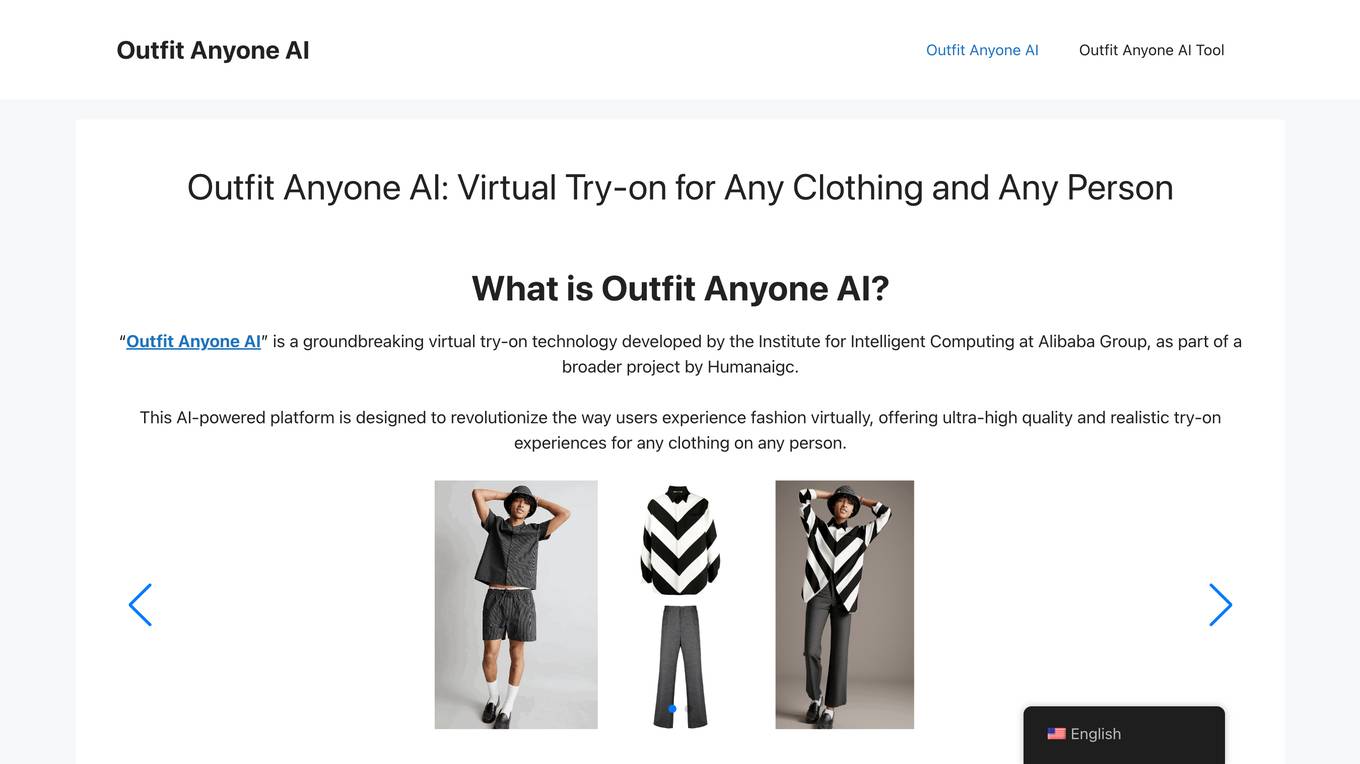
Outfit Anyone AI
Outfit Anyone AI is a cutting-edge virtual try-on platform developed by the Institute for Intelligent Computing at Alibaba Group. It leverages advanced AI technology to provide users with ultra-high quality and realistic virtual try-on experiences for any clothing on any person. The platform offers innovative features such as advanced virtual try-on technology, versatile fashion representation, inclusivity for different body types, animation and character creation capabilities, and integration with animation technologies. Users can explore diverse fashion styles, experiment with trends, and express their unique fashion identity effortlessly through the platform.
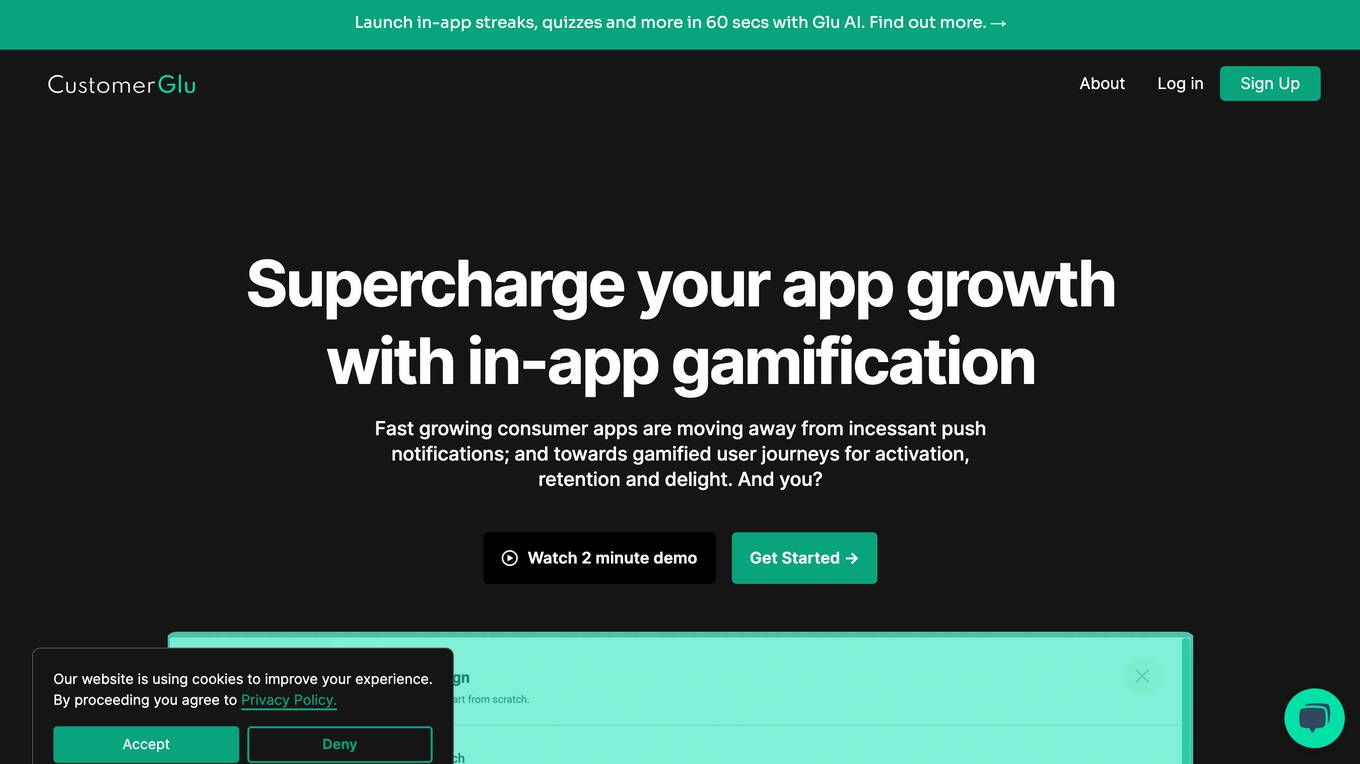
CustomerGlu
CustomerGlu is a gamification platform that helps fast-growing consumer apps enhance user engagement and retention through gamified user journeys. By leveraging game mechanics, CustomerGlu aims to improve key business metrics, increase user conversions, and boost retention rates. The platform offers ready templates, personalized recommendations, data collection tools, and in-app nudges to create engaging experiences for users. CustomerGlu is trusted by various growth teams and provides near-real-time reporting for quick course corrections and personalized experiences.
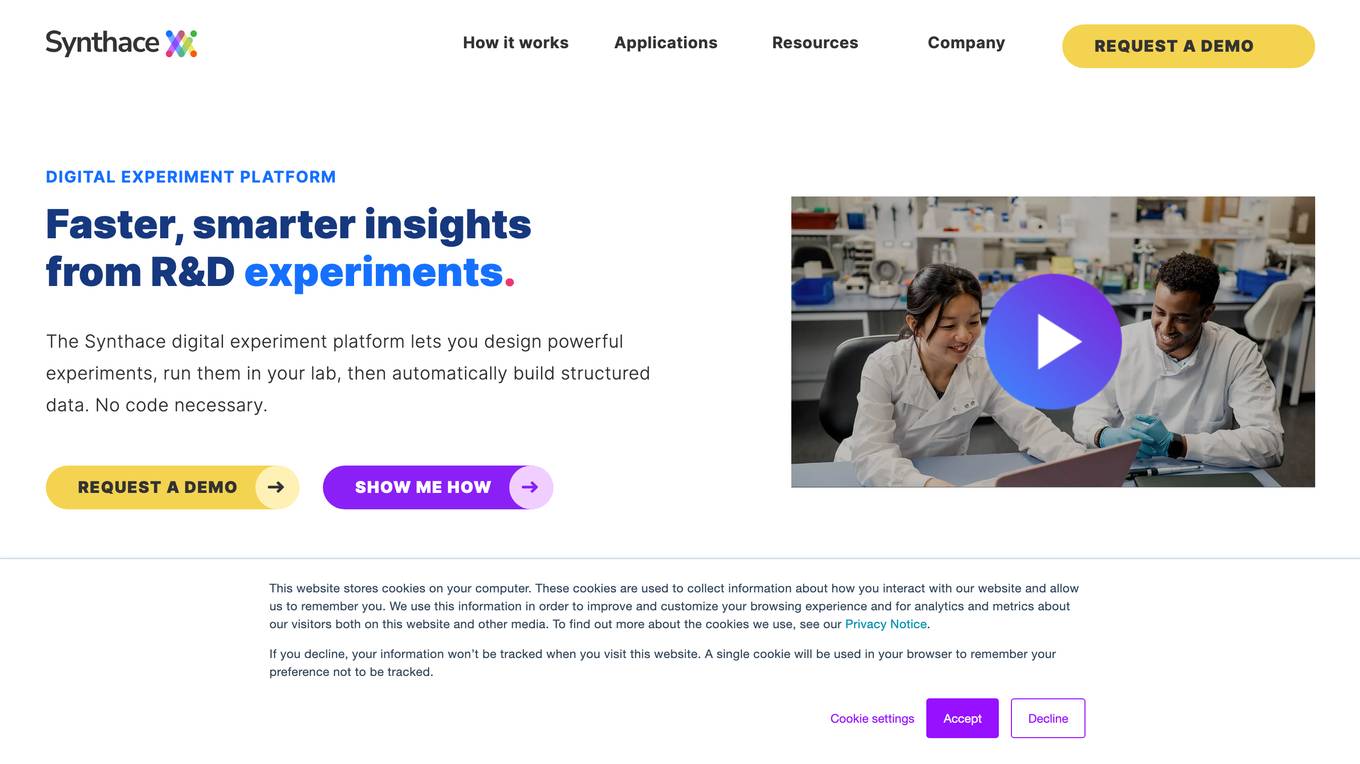
Synthace
Synthace is a software and expertise platform designed for Discovery Biology Teams to streamline and optimize their experiments in assay development, media optimization, and purification process development. The platform offers software solutions, training, and on-site support from specialists to help scientists conduct experiments more efficiently and effectively. By leveraging multifactorial methods and automation, Synthace aims to accelerate drug discovery processes and deliver faster, definitive results.

RBG AI Drop
RBG AI Drop is an AI tool that allows users to interact with a virtual version of Justice Ruth Bader Ginsburg. Users can ask her any YES/NO question and receive a response. The tool is designed as an experiment to simulate a conversation with the late Justice Ruth Bader Ginsburg. Users can sign up to receive future AI drops and continue engaging with the virtual RBG.
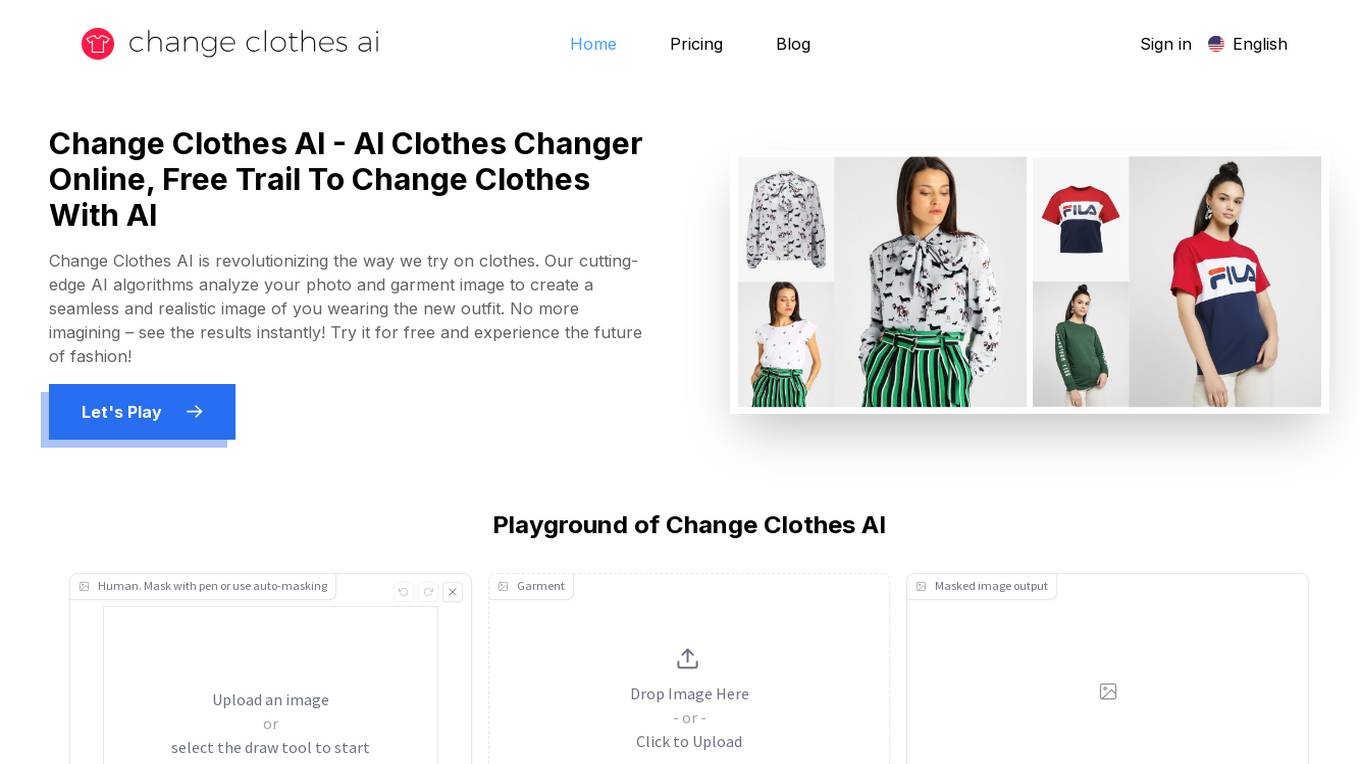
Change Clothes AI
Change Clothes AI is an innovative AI-powered online tool that revolutionizes the way we try on clothes. By utilizing cutting-edge AI algorithms, the application analyzes user photos and garment images to seamlessly create realistic images of individuals wearing new outfits. With a user-friendly interface and hyperrealistic results, Change Clothes AI eliminates the guesswork in online shopping, allowing users to visualize themselves in different styles effortlessly. The application offers a free trial and aims to provide a fun and functional experience for exploring endless outfit possibilities.

Remodel AI
Remodel AI is an AI-powered design tool that revolutionizes home remodeling by transforming interior and exterior spaces. Users can upload a photo of their space and watch as AI generates stunning remodeling designs in under 30 seconds. With a complete AI toolkit covering interior redesign, landscape planning, and architectural visualization, Remodel AI offers professional-grade renders and a simple 3-step design process. Trusted by professionals and homeowners alike, this tool provides lightning-fast results, secure data protection, and high-quality visualizations.
1 - Open Source AI Tools

rag-experiment-accelerator
The RAG Experiment Accelerator is a versatile tool that helps you conduct experiments and evaluations using Azure AI Search and RAG pattern. It offers a rich set of features, including experiment setup, integration with Azure AI Search, Azure Machine Learning, MLFlow, and Azure OpenAI, multiple document chunking strategies, query generation, multiple search types, sub-querying, re-ranking, metrics and evaluation, report generation, and multi-lingual support. The tool is designed to make it easier and faster to run experiments and evaluations of search queries and quality of response from OpenAI, and is useful for researchers, data scientists, and developers who want to test the performance of different search and OpenAI related hyperparameters, compare the effectiveness of various search strategies, fine-tune and optimize parameters, find the best combination of hyperparameters, and generate detailed reports and visualizations from experiment results.
20 - OpenAI Gpts
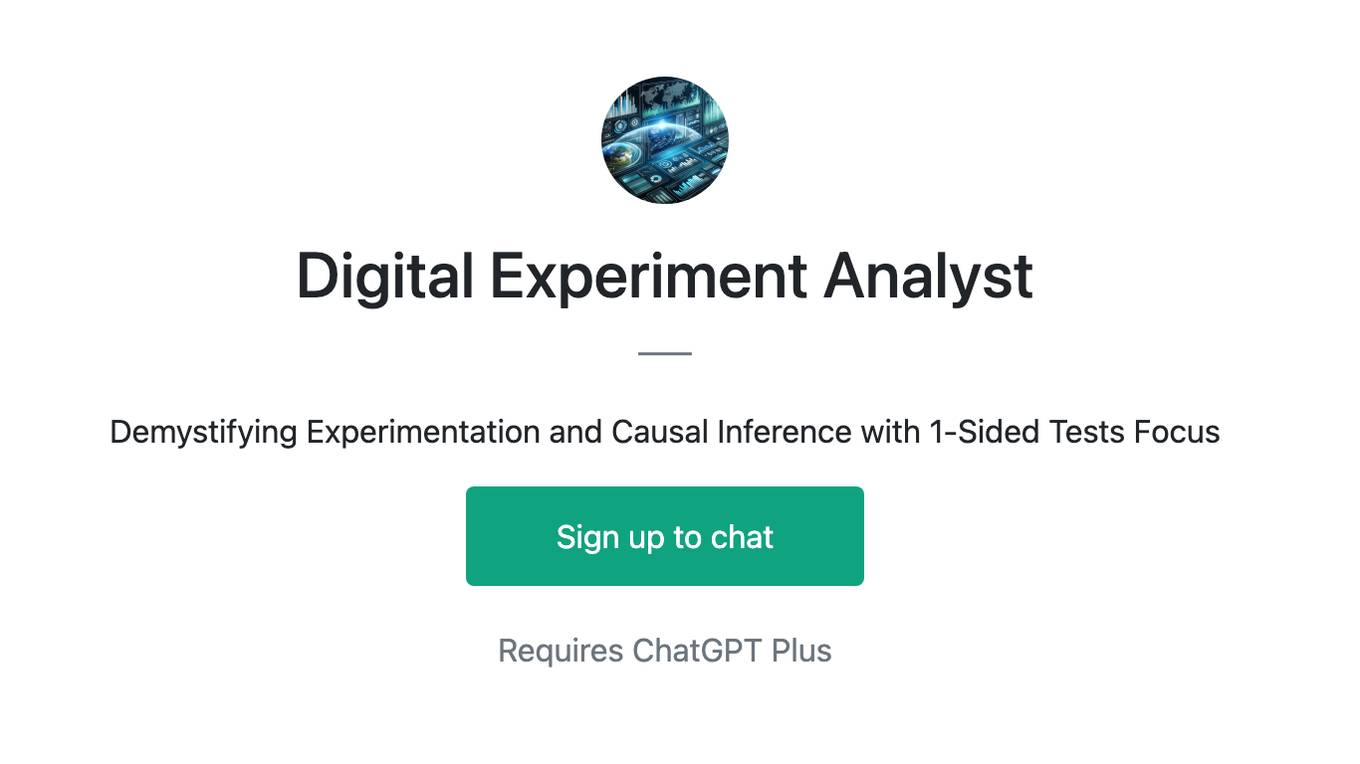
Digital Experiment Analyst
Demystifying Experimentation and Causal Inference with 1-Sided Tests Focus
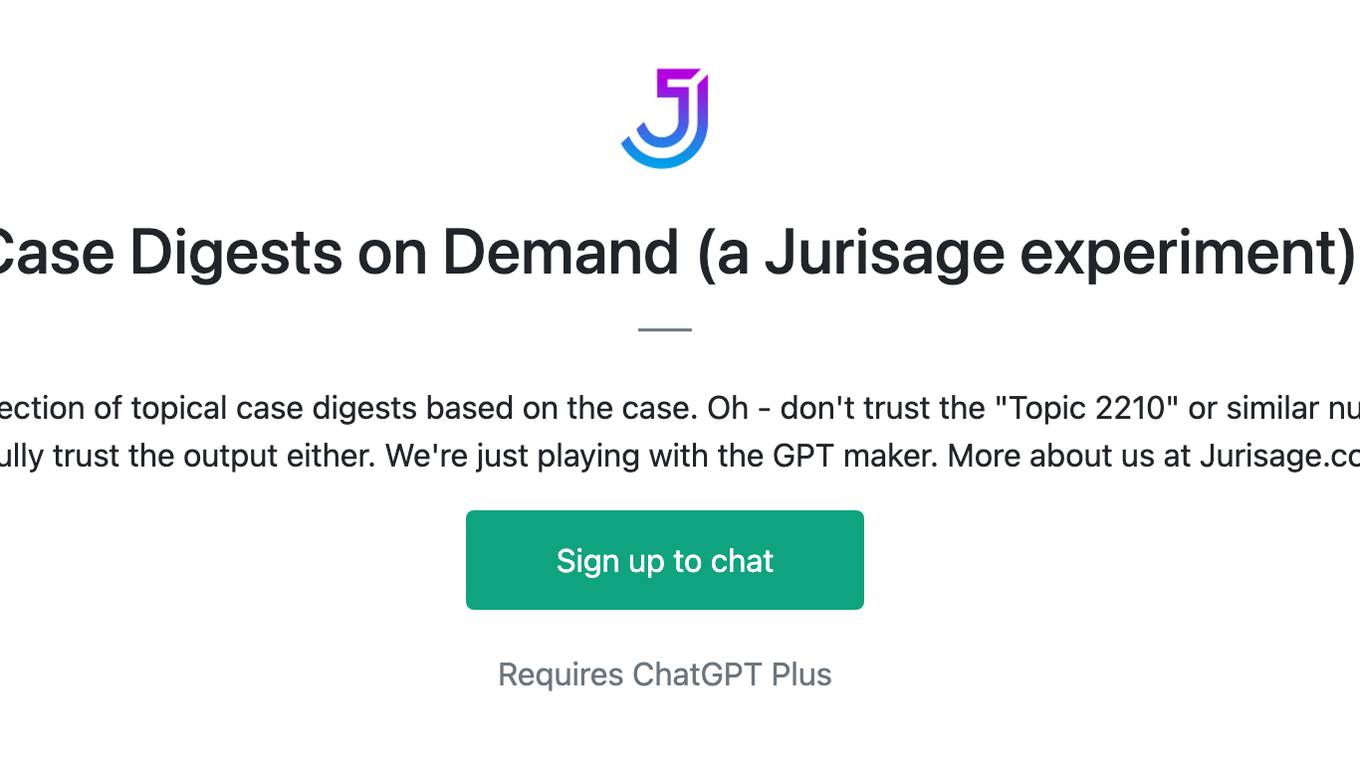
Case Digests on Demand (a Jurisage experiment)
Upload a court judgment and get back a collection of topical case digests based on the case. Oh - don't trust the "Topic 2210" or similar number, it's random. Also, probably best you not fully trust the output either. We're just playing with the GPT maker. More about us at Jurisage.com.
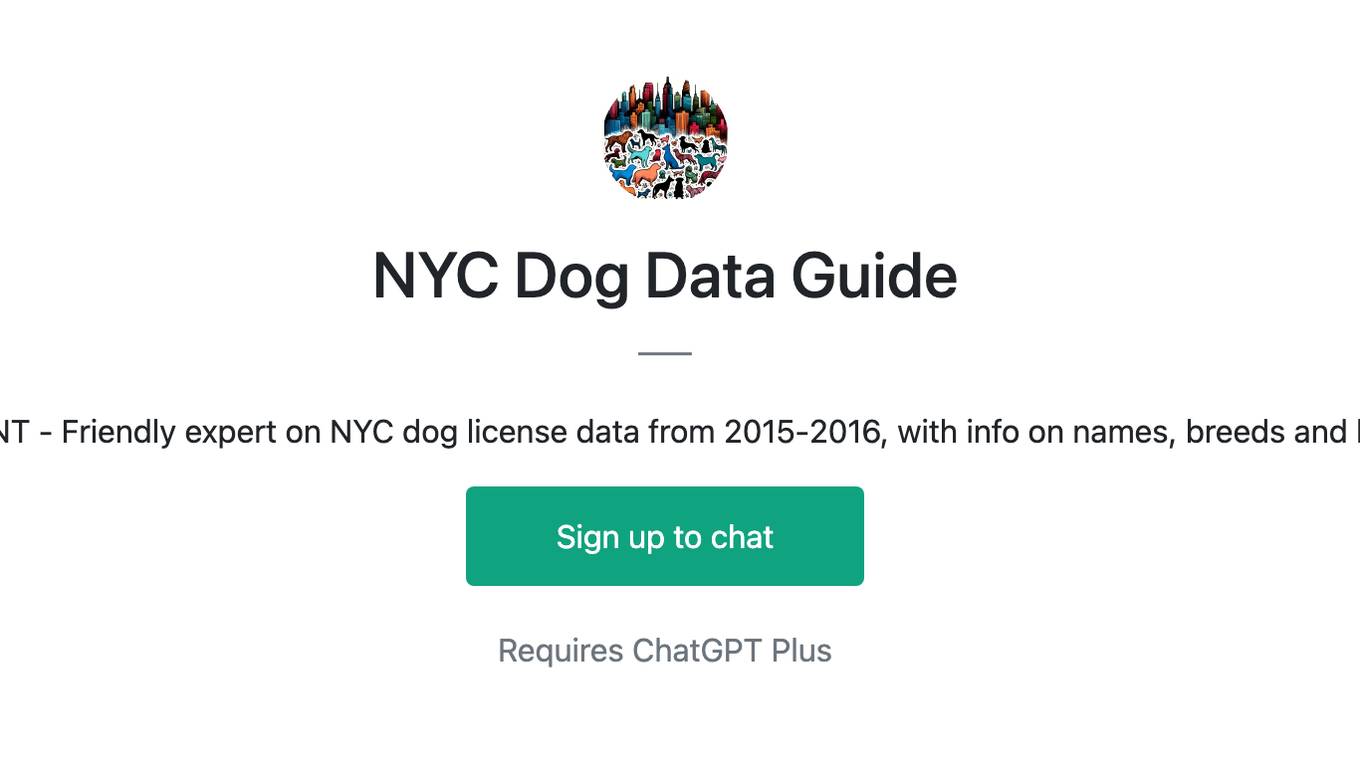
NYC Dog Data Guide
EXPERIMENT - Friendly expert on NYC dog license data from 2015-2016, with info on names, breeds and boroughs
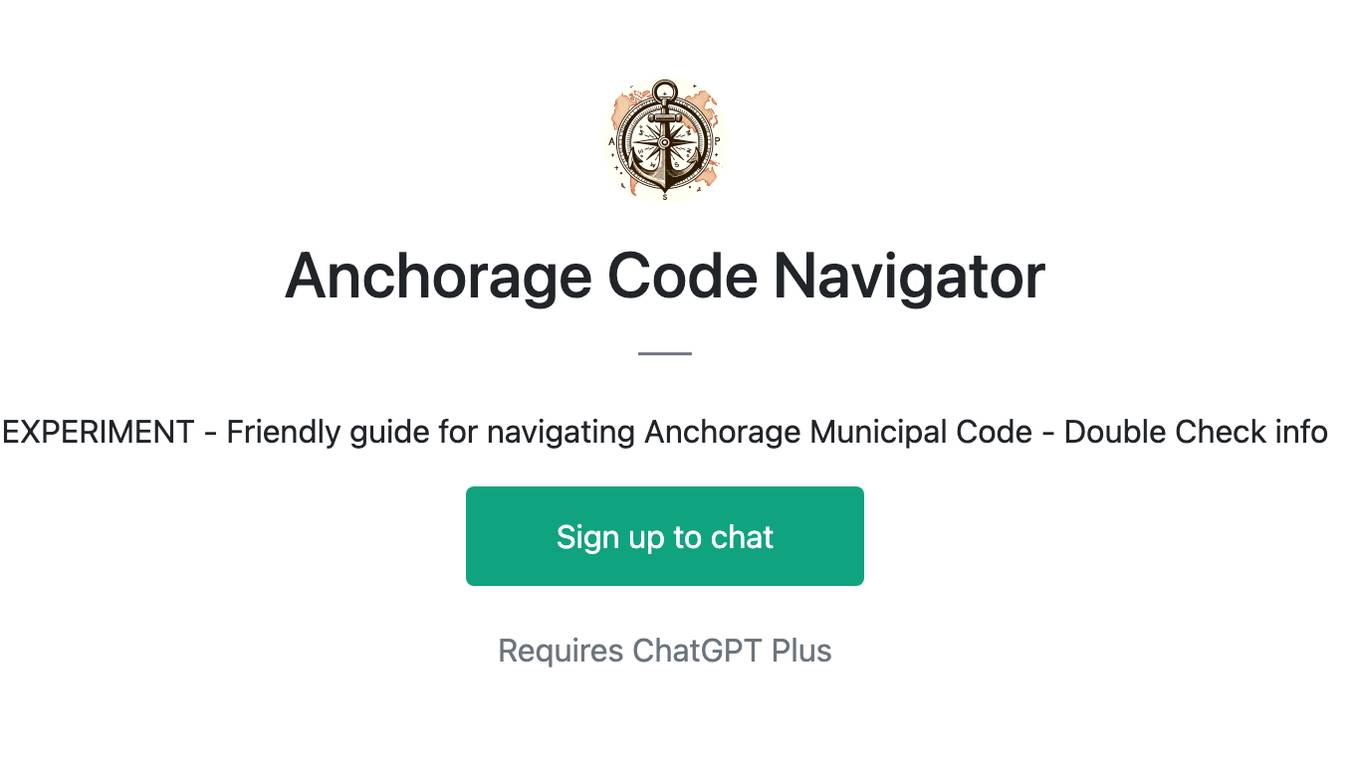
Anchorage Code Navigator
EXPERIMENT - Friendly guide for navigating Anchorage Municipal Code - Double Check info
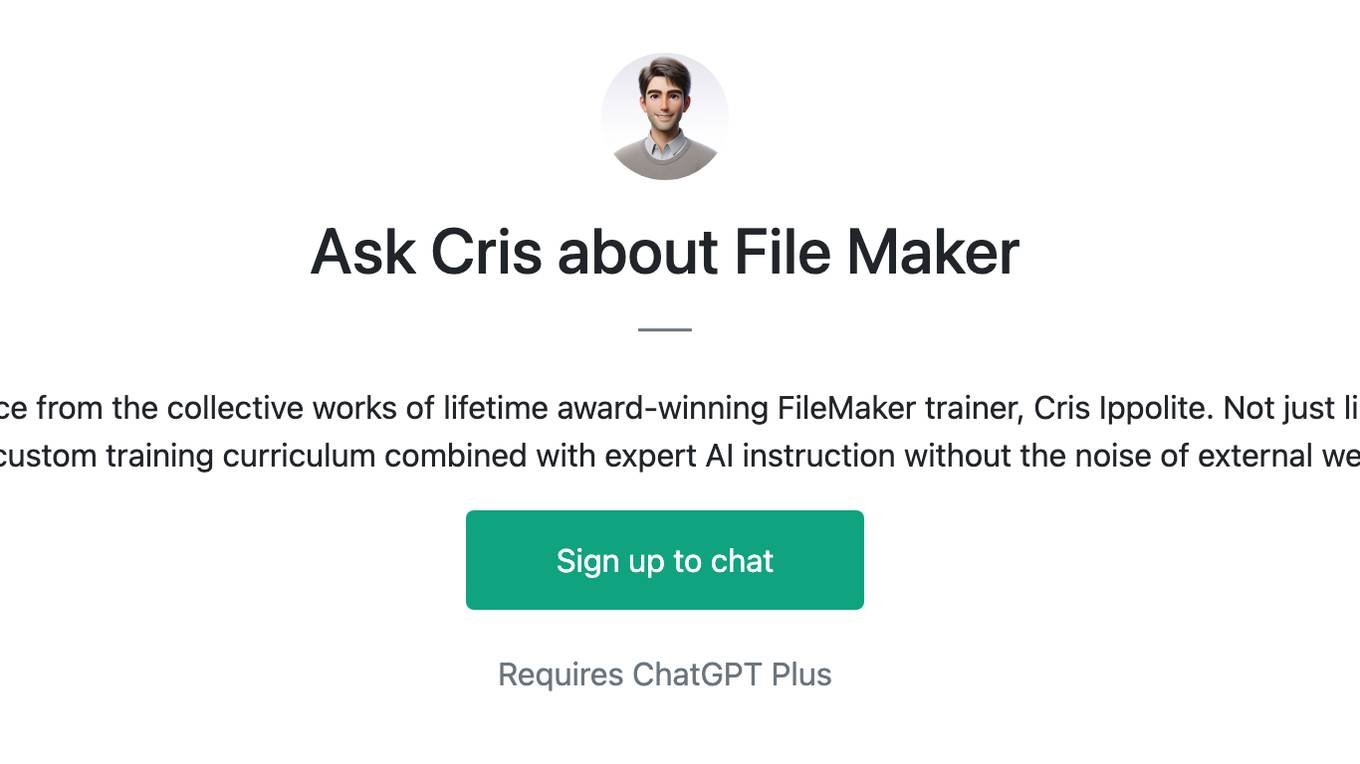
Ask Cris about File Maker
An experiment in personal FileMaker guidance from the collective works of lifetime award-winning FileMaker trainer, Cris Ippolite. Not just links to resources, but direct access to 20+ years of custom training curriculum combined with expert AI instruction without the noise of external web links.
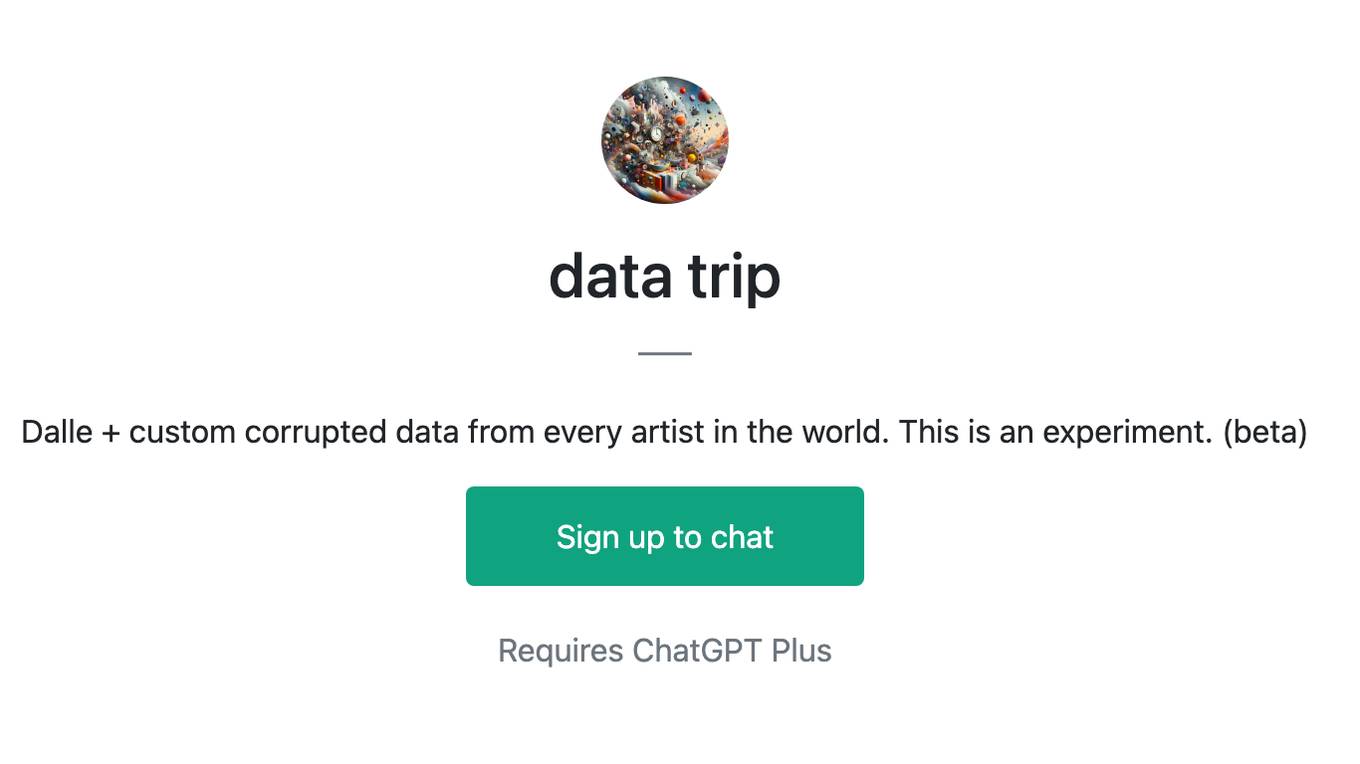
data trip
Dalle + custom corrupted data from every artist in the world. This is an experiment. (beta)
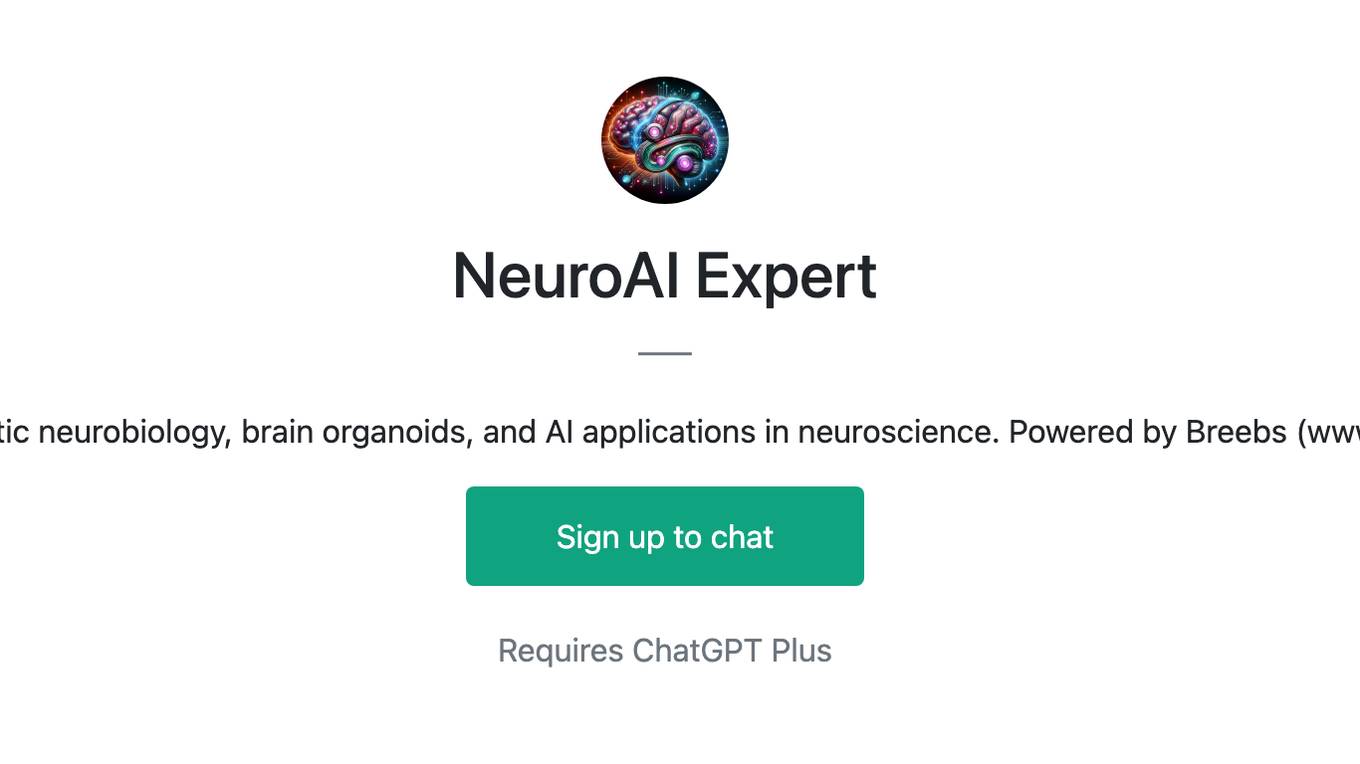
NeuroAI Expert
Expert in synthetic neurobiology, brain organoids, and AI applications in neuroscience. Powered by Breebs (www.breebs.com)
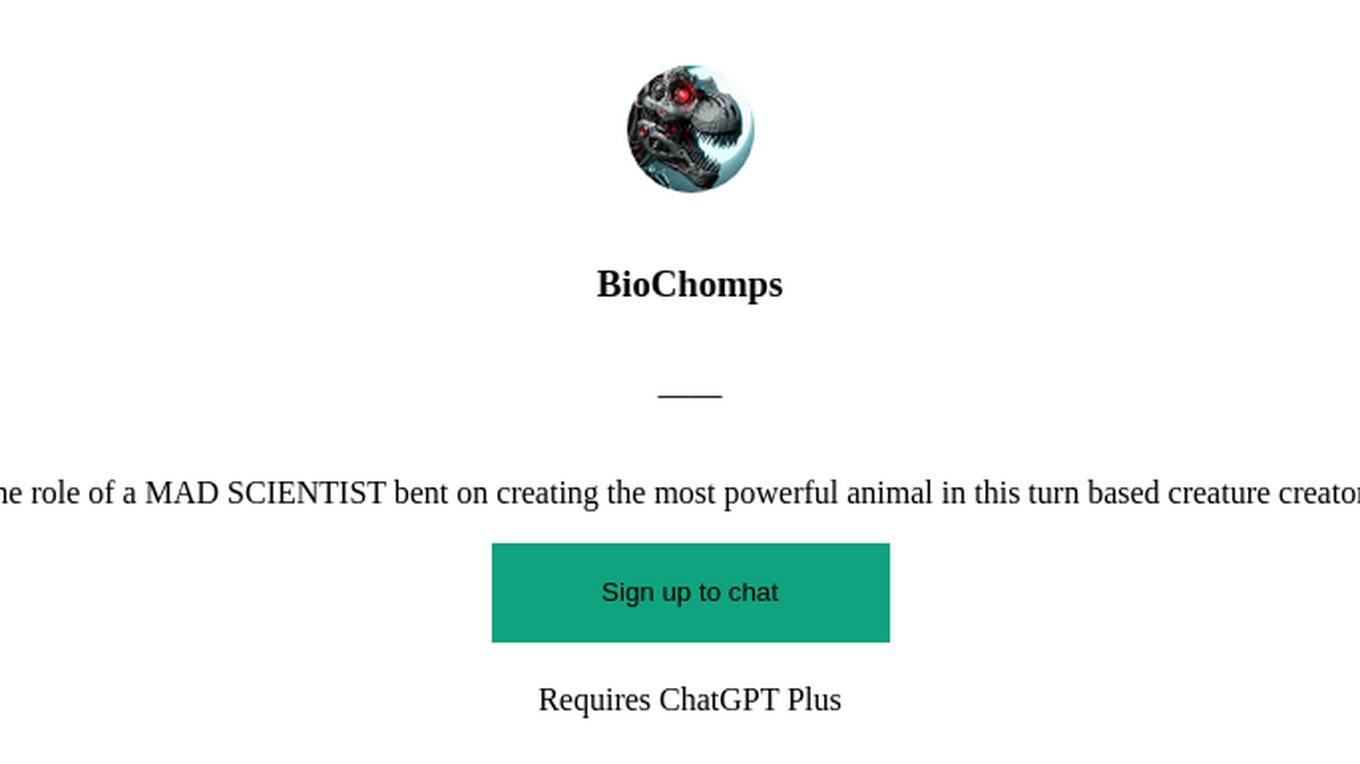
BioChomps
Assume the role of a MAD SCIENTIST bent on creating the most powerful animal in this turn based creature creator AI battler!
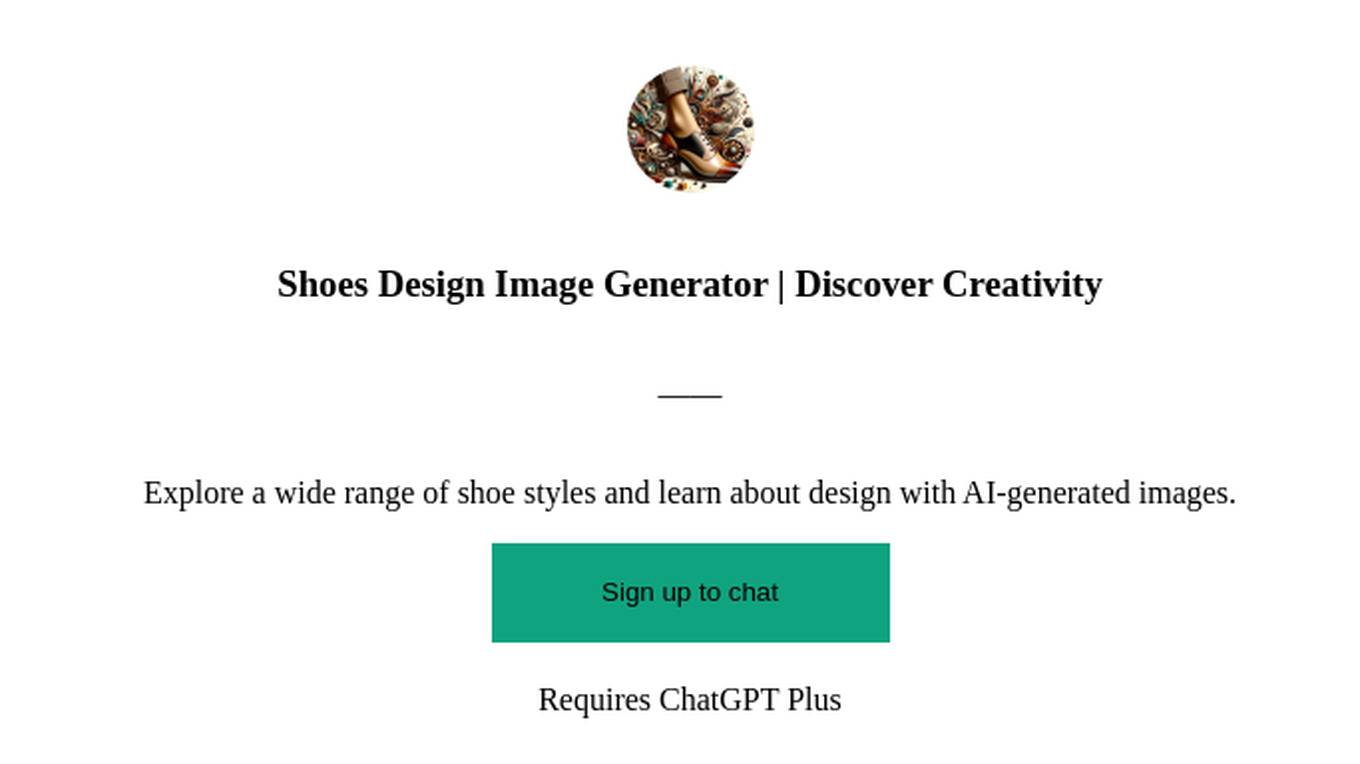
Shoes Design Image Generator | Discover Creativity
Explore a wide range of shoe styles and learn about design with AI-generated images.
